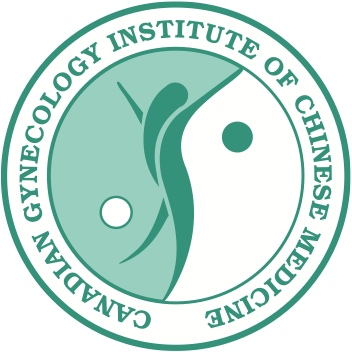Milk and Breastfeeding
The Chinese Medicine View of Breastfeeding
One common theme in Chinese Medicine is the theory that the mother feeds the child. We generally apply this theory to the organs, if one organ is weak we often target our treatment to support the “mother” organ to strengthen the weakened one.
This theory is never more true when it comes to breastfeeding. Mother’s milk is the best food for a baby, in terms of nourishment and in terms of helping to establish a healthy immune system. It is essential to breastfeed when possible.
The breastmilk is seen as an extension of the Blood and therefore mother’s need to eat foods that build their blood. Our blood is created from the food we eat, it is transformed in the digestive system by the spleen (and stomach), which is seen as the centre of the digestive system.
While pregnant, what the mother eats nourishes the child by passing through the uterus and through the placenta where is reaches the child. When breastfeeding what the mother eats reaches the child through the breast in the breastmilk. What the mother eats, the child eats.
The digestive system in babies and children is considered weak and not matured until the age of about 7 or 8. Breastmilk is the easiest thing to a new digestive system to digest. It is not recommended that babies have anything other then breastmilk for at least 4 months and even up to 6 months.
Since what the mother consumes the child also consumes, it is recommended that mothers eat a bland diet rich in blood nourishing foods and avoid drugs and other stimulants such as caffeine and alcohol.
Of course the only nourishment that a child receives from breastfeeding is not related to food, but there is bonding process that is important as well.
There are hormonal benefits to the mother and baby as well, when breastfeeding, oxytocin is released, this is also called the love hormone and helps to create a deep feeling of love between mother and child. The release of oxytocin in the mother also causes the uterus to contract, helping it to return to it’s original size. Not to mention breastfeeding helps a woman return to her pre-pregnant size and weight.
More about breastfeeding and bonding can be read in this article.
Engorgement
For the first 2-5 days, the baby has been eating colostrum, a yellowish thin liquid rich in immune strengthening antibodies from the mother. Following that, the milk “comes in”. The breasts will get quite full and engorged with milk. If the milk is not taken out, the breast can become hard and painful and the skin can look shiny and tight.
The breasts can become so swollen that the milk ducts can become swollen closed or mastitis can develop.
When the breast is so large and swollen, it can be hard for the baby to latch on. While the breasts are engorged, try to nurse the baby or express some milk, but only enough to where the breasts feel comfortable. The more milk that is removed, the more the body will make. Breastmilk is produced on a supply and demand system, meaning that the more a baby is suckling at the breast and drinking milk, the more milk the body will produce.
Do try to nurse at least every 1.5 -hours during the day and 3 hours at night while engorgement is a problem.
Cabbage leaves are an old remedy for engorged breasts, cut the hard spine out of the centre and place inside the bra. Change when the leaves get wilted.
Insufficient Lactation
Insufficient lactation is often due to Blood deficiency in the mother who is not able to turn her blood into breastmilk or Qi stagnation which is not allowing the breastmilk to flow properly.
Treatment with Chinese Medicine involves a combination of herbal medicine and acupuncture to either build up the Qi and Blood, or herbs to invigorate the Qi.
There is an acupressure point that can be stimulated right before feeding which can stimulate the letdown reflex and help the flow of milk to smoothly.
Mastitis
Mastitis is when one of milk ducts becomes infected, an area of the breast may be hard, red, painful and there may or may not be a fever as well. It can develop from engorged breasts that were not resolved or not emptying the breasts during feeding which can be due to the baby not latching on properly. It can also be from bacteria entering into the ducts from cracked nipples.
Infection and inflammation is seen as excess heat, therefore treatments with herbs and acupuncture focus on clearing heat, especially from the liver channel which passes through the breasts
Taking herbs while breastfeeding
The well known saying in Chinese Medicine “feed the mother to feed the child” applies here. What the mother ingests, the baby ingests as well. There are many drug medications that need to be avoided during breastfeeding because of this fact. The same is true for foods and herbal medicine. There are herbs that should avoided, but many are safe.
A qualified herbalist will know which herbs to avoid when a woman is breastfeeding. In fact, herbal medicine is recommended to help problems with breastfeeding.
For more information you can read an article on herbs and breastfeeding here.
Cracked and Sore Nipples

Book An Appointment
Blood Building and
Anti-colic Foods
- Apples
- Pears
- Avoado
- Asparagus
- Carrot
- Eggplant
- Root vegetables
- Corn
- Papaya
- Bananas
- Sprouts
- Beetroot
- Celery
- Pumpkin
- Zucchinni
- Mushrooms
Teas:
- Chamomile
- Dandelion
- Fennel
- Cardamom
Foods to Avoid
(until baby is 2-3 months)
- Berries
- Grapes
- Peaches and stone fruits
- Strawberries
- Mangoes
- Cabbage
- Peas
- Tomato
- Turnip
- Lentils
- Garlic
- Raw onions
- Melons
- Oranges
- Pineapple
- Lemon
- Broccoli
- Brussel sprouts
- Cucumber
- Lettuce
- Radish
- Cauliflower
- Fish
- Eggs
- Dairy
Strong herbs and spices
- Yeasts
- Tea, coffee, chocolate
- Alcohol
Problems With Baby
Colic
In Chinese Medicine it is called night crying, and the origins are due to the baby’s weak digestive system which doesn’t mature until about age 6. Weak digestion leads to a pattern called food stagnation which can be thought of as food that is stuck in the stomach and intestines and is not being digested causing pain and discomfort.
Babies will often be pumping their legs to try to relieve the gas pains.
A practitioner of Chinese Medicine can determine the underlying pattern relating to the food stagnation. Massage and a slight adjustment to food the baby/mother is eating may be all that is needed. Otherwise there are simple herbal formulas that can be given to the baby from an eyedropper. Colic can often be resolved within a week.
Oral Thrush
There is a disturbance between the good bacteria/yeast/fungus has been disturbed allowing the candida yeast to become too abundant. This is often the result of antibiotic use in the mother which eradicates the healthy flora.
An herbal wash can be prepared and wiped inside the baby’s mouth and genital areas on a daily basis. The herbs have anti-fungal/yeast/bacteria functions.
It can also be helpful to take a good quality pro-biotic for babies.
